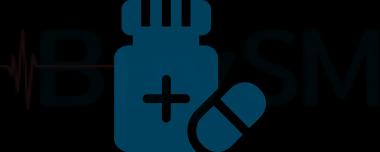

Aconast 1 mg Tablet | 10 Tablets in 1 Bottle
- Manufacturer/Marketed By
Accord Life Spec Pvt Ltd
- Active Pharmaceutical Ingredient
Anastrozole 1 mg
(Inclusive of all taxes)
Introduction of Aconast 1 mg Tablet
Aconast 1 mg Tablet belongs to aromatase inhibitors. It is used to treat breast cancer that is positive for hormone receptors in its early stages. It is also prescribed as a first-line treatment option for advanced or metastatic breast cancer whose hormone receptor status is positive or unknown. Furthermore, Aconast 1 mg is used to treat advanced breast cancer that has grown or spread after previous tamoxifen treatment. It is important to note that this medicine is used only in postmenopausal women who have already stopped menstruating. Aconast Tablet is not effective for the treatment of ER-negative breast cancer or patients who did not respond to tamoxifen therapy. This medicine works by lowering the level of estrogen (a type of sex hormone in women) in the body. As a result, the growth of breast cancer cells is stopped or delayed.
Aconast 1 mg Tablet can cause some common side effects such as weakness, headache, sweating, stomach pain, diarrhea, nausea, vomiting, hair thinning, depression, dizziness, and loss of appetite. However, not everyone who takes Anti-cancer Drug Aconast will experience these side effects. If you experience any of these side effects while taking Anastrozole Tablet 1 mg, it is important to inform your doctor. They can recommend ways to manage these side effects or adjust your medication if necessary. In addition, it is important to avoid taking Anti-cancer Drug Aconast if you are allergic to anastrozole or any other components of the medication. It is also important to take Aconast 1 mg Tablet exactly as directed by your doctor and not change your dosage or stop taking the medication without first consulting with your doctor. They can provide guidance on the best course of action based on your individual medical history and condition.
Anti-cancer Drug Aconast is not recommended for use in women who are still having periods, as it may not be effective in reducing estrogen levels and could cause harm. Aconast 1 mg should only be taken by women who are postmenopausal. Additionally, it is important to inform your doctor of any medical conditions you have, especially heart problems, high cholesterol levels, and osteoporosis, as Aconast 1 mg can exacerbate these conditions. Your doctor may need to monitor you more closely or adjust your dosage accordingly. It is also not recommended for use in pregnant or breastfeeding women, as it can harm the developing fetus or newborn. If you are pregnant or breastfeeding, talk to your doctor about alternative treatments for breast cancer. It is important to follow your doctor's instructions carefully when taking Aconast 1 mg Tablet and to report any side effects or concerns to your doctor.
Aconast 1 mg Tablet can be taken with or without food. It is recommended that you take it at the same time every day for ease of remembering and better results. Your doctor will decide the dose and duration of treatment based on your clinical conditions, such as the stage and type of breast cancer you have, as well as your overall health. It is important that you follow your doctor's instructions carefully when taking Aconast 1 mg. Do not stop taking the medication without consulting your doctor, as it may worsen your condition or cause cancer to return. If you experience any side effects or have any concerns, be sure to inform your doctor right away. Do not take more than the recommended dose of Aconast 1 mg Strip; it may increase the risk of undesired effects. In some cases, taking more of the medication may not improve the effectiveness of the treatment and may instead cause harm.
Uses of Aconast 1 mg Tablet
Breast cancer: Aconast 1 mg Tablet is used in the treatment of breast cancer, a condition in women that causes abnormal growth of cells in the breast. The signs and symptoms include a lump in the breast or underarm, a change in breast shape, irritated or itchy breast, a change in breast colour, pain and tenderness, etc.
Benefits of Aconast 1 mg Tablet
Aconast 1 mg Tablet is generally well-tolerated and has fewer side effects compared to other chemotherapy drugs. Aconast 1 mg may cause some of the most common side effects including hot flashes, joint pain, weakness, and bone loss. Anastrozole Tablet 1 mg is used to lower the risk of cancer coming back after treatment. Aconast 1 mg Tablet can help slow or stop the growth of hormone receptor-positive breast cancer, which is a common type of breast cancer. In some cases, Aconast Tablet may be used to prevent breast cancer in women who are at high risk for the disease. Anti-cancer Drug Aconast may help improve the chances of survival for women with hormone receptor-positive breast cancer by reducing the risk of cancer recurrence.
Side Effects of Aconast 1 mg Tablet
Like all medication, Aconast 1 mg Tablet may cause some side effects. If you experience any of these side effects contact your doctor as soon as possible. Your doctor may be able to suggest ways to manage or reduce the severity of these side effects.
Most Common Side Effects of Aconast 1 mg Tablet
- Osteoporosis
- Rashes
- Hot Flushes
- Joint Pain
- Nausea
Common Side Effects of Aconast 1 mg Tablet
- Stomach pain
- Nausea
- Vagina Dryness and Bleeding
- Hair Thinning
How to Use Aconast 1 mg Tablet?
Aconast 1 mg can be taken with or without food, but it is recommended to take it at the same time each day for optimal results. Dosage and frequency of use will be determined by your doctor based on your specific condition and may change over time. It is important that you follow your doctor's instructions and do not change the dosage or frequency of intake without their guidance.
How Aconast 1 mg Tablet Works?
Aconast 1 mg Tablet contains the active ingredient anastrozole, which is an aromatase inhibitor. Aromatase is an enzyme that converts androgens (male hormones) into estrogens (female hormones) in the body. By blocking the action of aromatase, anastrozole reduces the amount of estrogen produced in the body. Breast cancer cells often grow in response to estrogen. By lowering the level of estrogen in the body, Anti-cancer Drug Aconast can slow down or stop the growth of breast cancer cells. Aconast 1 mg is often used to treat hormone receptor-positive breast cancer in postmenopausal women, as these cancers tend to be fueled by estrogen. However, it is important to note that Anti-cancer Drug Aconast is only effective in treating hormone receptor-positive breast cancer and may not be effective in treating other types of breast cancer.
Safety Advices Aconast 1 mg Tablet
Pregnancy
Unsafe
Use of Aconast 1 mg Tablet may be unsafe during pregnancy as animal studies indicate that it may harm the developing fetus. However, if you are pregnant or planning to become pregnant, it is important to talk to your doctor about the potential risks and benefits of taking Anastrozole Tablet 1 mg during pregnancy. Your doctor will be able to help you make the best decision for you and your baby's health.
Driving
Unsafe
Aconast Tablet may cause dizziness, fatigue, and difficulty concentrating and coordinating, which may affect your ability to drive a vehicle safely. It is important to follow your doctor's instructions and take necessary precautions, such as avoiding driving a vehicle or operating heavy machinery, if you suffer from the side effects of this Aconast 1 mg.
Kidney
Use with Caution
Aconast 1 mg Tablet should be used with caution in patients with kidney disease. It is important that patients with kidney disease closely monitor kidney function while taking Aconast 1 mg Strip and report any unusual symptoms or changes in kidney function to their doctor. The dose of Aconast 1 mg may need to be adjusted in patients with kidney disease.
Alcohol
Unsafe
It is not recommended to consume alcohol while taking Aconast 1 mg Tablet. Alcohol may increase the risk of side effects or interfere with the effectiveness of the Anti-cancer Drug Aconast. It is best to talk to your doctor or pharmacist before consuming alcohol while taking any medicine.
Breastfeeding
Unsafe
It is not recommended to breastfeed while taking Aconast 1 mg. Aconast 1 mg Tablet may pass into breast milk and harm the infant. If you are breastfeeding and taking Aconast 1 mg Strip, it is important to talk to your doctor about the possible risks and benefits of continuing to breastfeed. Your doctor will be able to help you make the best decision for you and your baby's health.
Liver
Use with Caution
Aconast 1 mg Tablet should be used with caution in patients with liver disease. It is important that patients with liver disease closely monitor liver function while taking Aconast Tablet and report any unusual symptoms or changes in liver function to their doctor. The dose of Aconast 1 mg may need to be adjusted in patients with liver disease.
Similar Medicines
Anti-Cancer
Why customers like you choose BuySM.com?

Genuine Medicine
We maintain complete transparency in our sourcing and supply chain processes.

Secure Payments
This ensures that all data exchanged between your browser and our server remains confidential and secure

Fast Delivery
Stay informed about the status of your order with our real-time tracking feature.

Best Price & Offer
Enjoy even greater savings by taking advantage of our bundle offers.

5,000
Total Customers

15,000+
Products Sold Out

10,000+
Orders Delivered

10+
Cities




